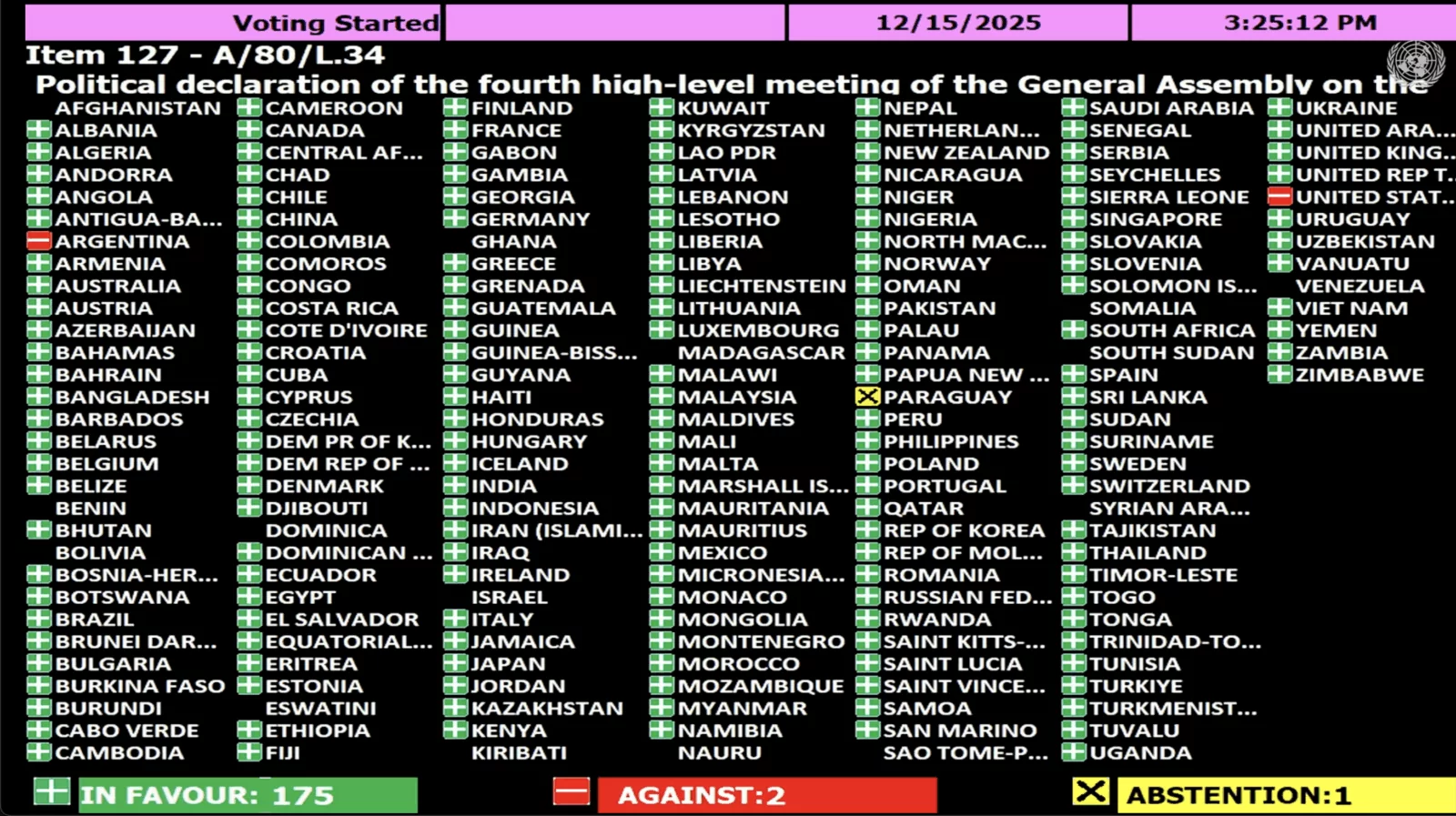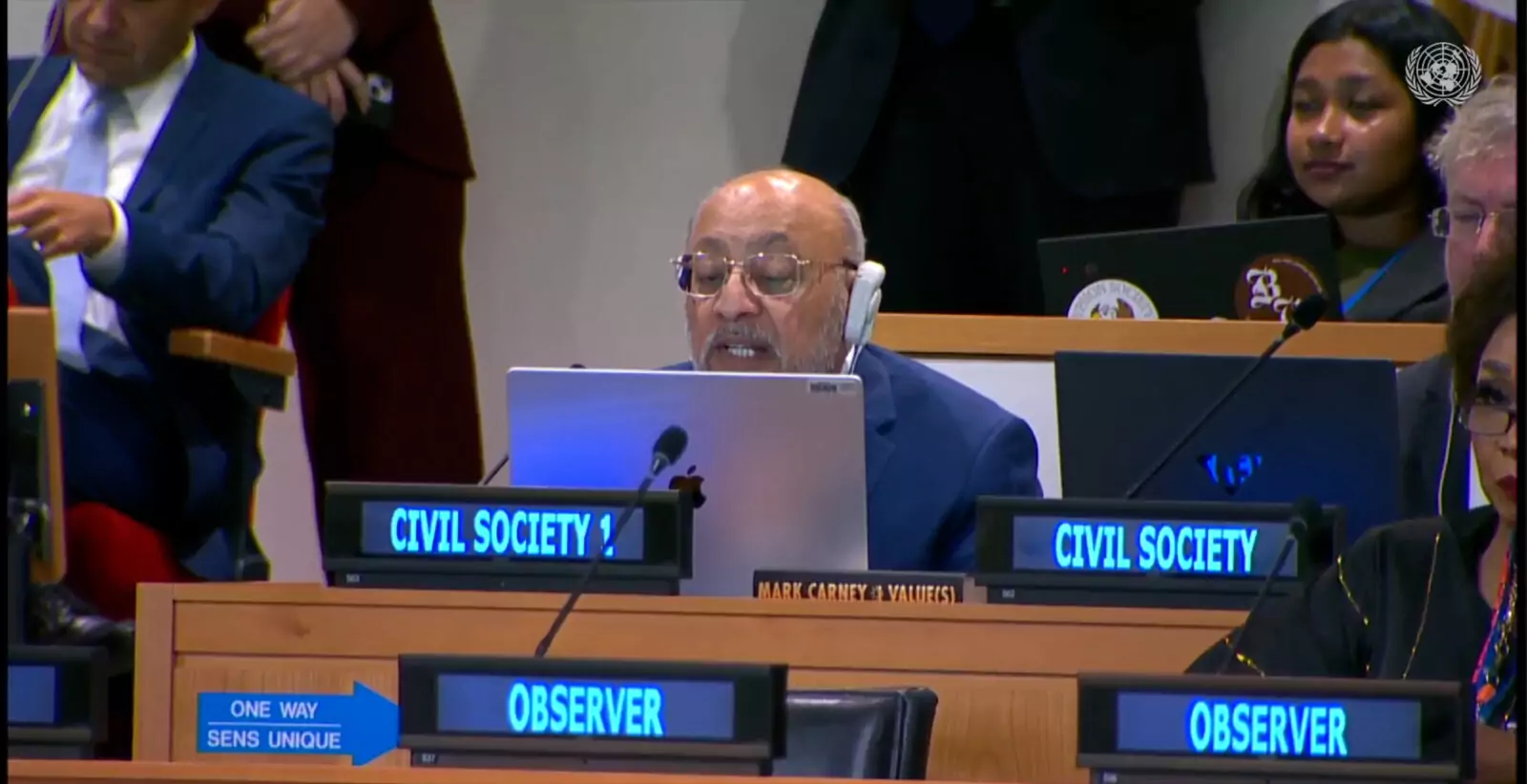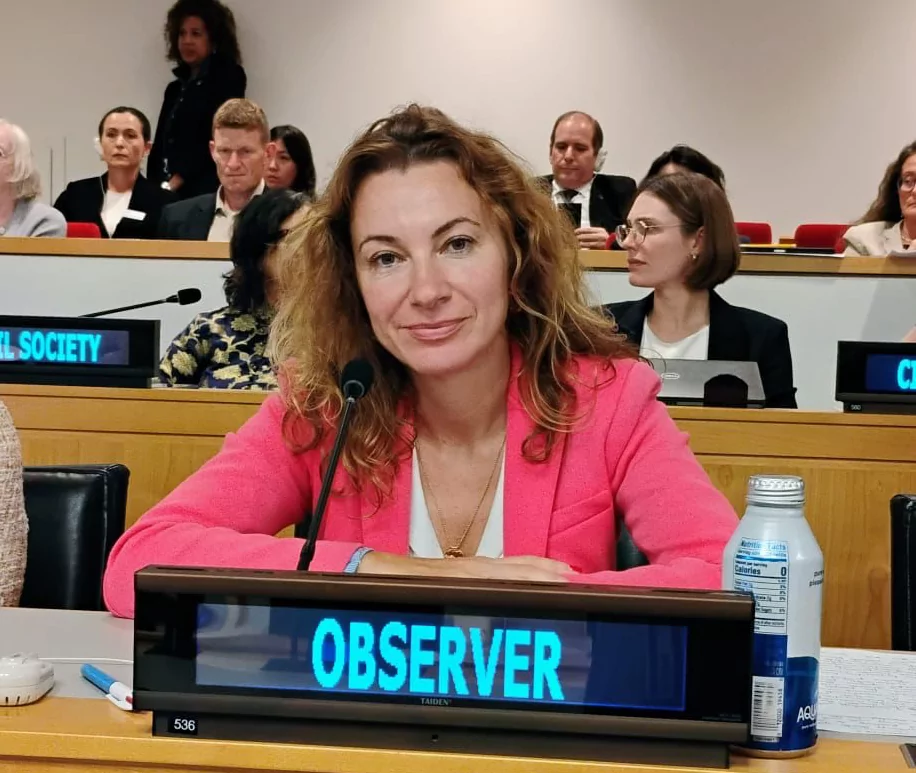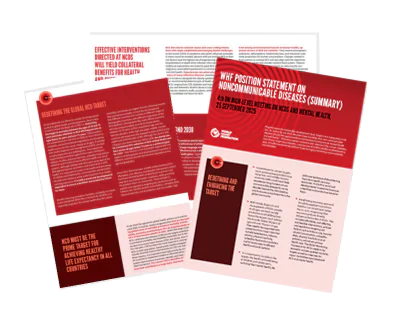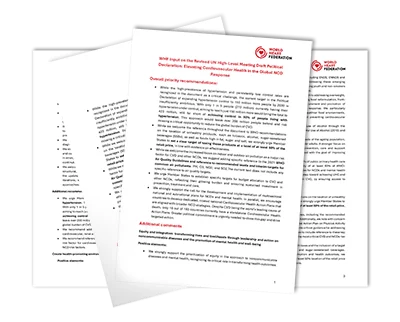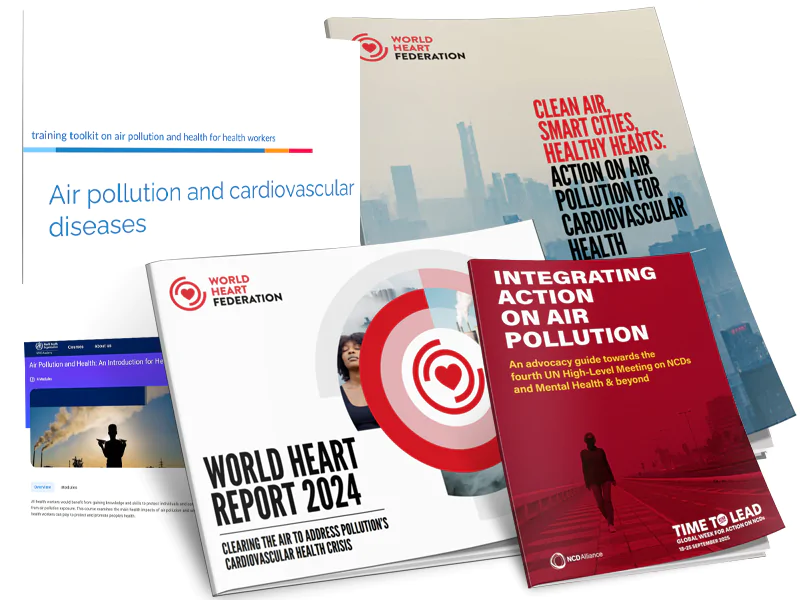On 25 September 2025, Heads of State and Government gathered in New York for the 4th United Nations High-Level Meeting (UNHLM) on the Prevention and Control of Noncommunicable Diseases (NCDs), with an expanded focus on mental health and well-being. It was a key opportunity to secure renewed, concrete political commitments to prevent and manage NCDs, including cardiovascular disease, the world’s leading cause of death.
WHF regrets that the 4th UN Political Declaration on NCDs did not secure formal endorsement at the Meeting, after opposition from a small minority of countries, including the United States. The Declaration had already garnered broad support from major groups, including the Group of 77, the European Union, the Gulf Cooperation Council, Pacific Island nations, and Caribbean nations. Since consensus adoption was blocked, the draft must now face a formal vote by all Member States to be formally adopted.
WHF actively engaged in the process to ensure CVD was prioritized and that governments committed to bold, evidence-based action. We worked with governments, UN agencies, civil society, and the scientific community to bring the lived realities of cardiovascular disease to the table and to hold leaders accountable—and we continue to advocate ahead of the forthcoming vote.
WHF’s statement
The Fourth United Nations Political Declaration on Noncommunicable Diseases and the promotion of mental health and well-being was adopted by the UN General Assembly following a vote, after consensus could not be reached at the High-Level Meeting.
Read WHF’s statementWHF President Prof. Jagat Narula Delivers Key Statement at UN High-Level Meeting on NCDs and Mental Health
Read the statementWHF UN High-Level Meeting Statement on Health Systems Strengthening and Financing for NCDs
Read the statement1) Expand hypertension treatment to 500 million more people by 2030, with the goal of achieving 50% hypertension control by 2030
- Scale up primary health care-based hypertension diagnosis, treatment, and follow-up.
- Prioritize vulnerable populations, especially in low- and middle-income countries.
2) Implement fiscal policies, imposing at least 50% taxation on tobacco, alcohol, and sugar-sweetened beverages
- Use taxation to reduce consumption of health-harming products.
- Use taxation to generate revenue for health systems.
3) Adopt and implement the WHO 2021 Global Air Quality Guidelines to reduce air pollution levels and prevent over 4.5 million CVD deaths
- Set clear national targets for improving air quality, while investing in air quality monitoring systems.
- Integrate these guidelines into national policies to prevent ischemic heart disease, stroke and other NCDs.
4) Address systemic health inequities and establish sustainable financing structures for cardiovascular disease management
- Expand access to CVD and NCD prevention, diagnosis, treatment, and care within Universal Health Coverage (UHC) frameworks.
- Close financing gaps by increasing domestic health budgets and scaling up development assistance for NCDs, with specific prioritization of LMICs.
5) Commit to a 50% reduction in NCD-related deaths and disability across all age groups by 2050
- Broaden the existing SDG 3.4 target to cover children, adolescents, and older adults, beyond the 30–70 age range.
- Include morbidity in national and global targets and monitoring frameworks.
WHF Position Statement for United Nations Fourth High-Level Meeting-2025
Download The StatementWHF POSITION STATEMENT ON NONCOMMUNICABLE DISEASES (SUMMARY)
DownloadWHF Input on Rev. 4 of the UN High-Level Meeting Draft Political Declaration
downloadPocket Guide: Cardiovascular health at the heart of global action
DownloadSign the Petition
Choose the option that fits your time and interest!
Build momentum before the 4th UN High-Level Meeting on NCDs
Hypertension Infographics - UNHLM
Hypertension is the world’s leading risk factor for heart disease, yet it’s both preventable and manageable.
This infographic provides clear facts, global statistics, and practical tips to help you better understand the impact of high blood pressure and the actions you can take to protect your heart. Download now to share these insights with your community and support lifesaving awareness.
Download the Hypertension Infographics - UNHLMWHF Toolkit: Addressing Air Pollution and CVD
The World Heart Federation has developed the Air Pollution & Heart Health Toolkit, a set of evidence-based resources and ready-to-use materials designed to support policymakers, civil society, and health advocates in addressing one of the leading environmental risk factors for cardiovascular disease.
Find out more